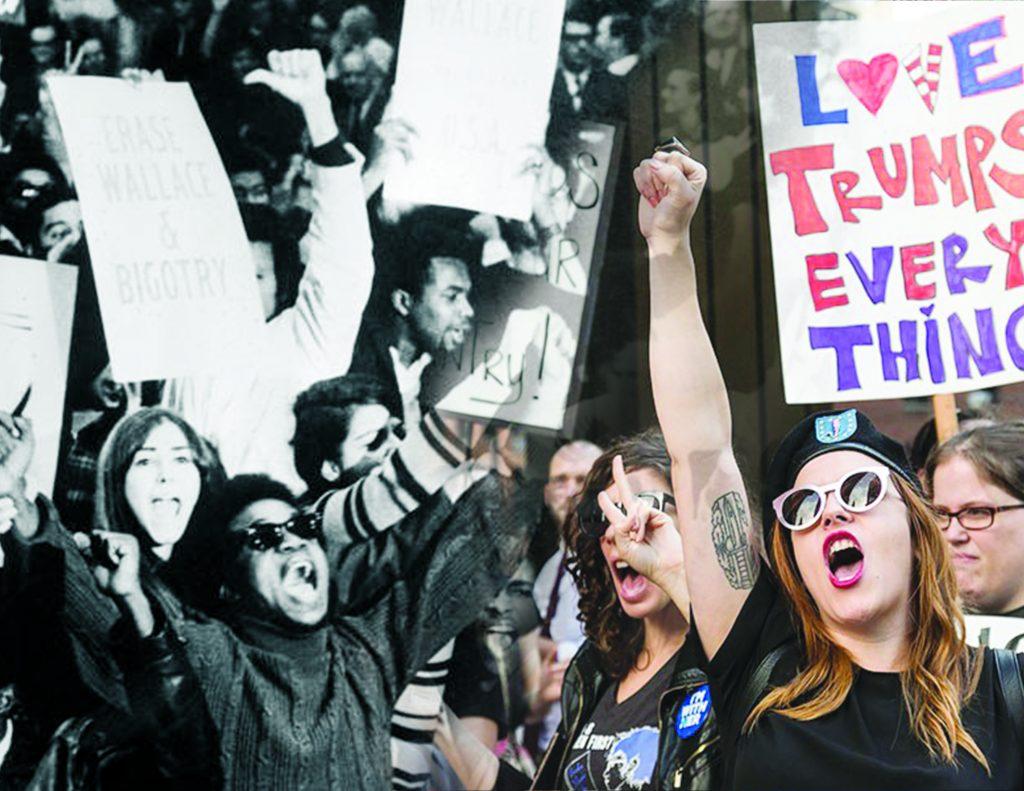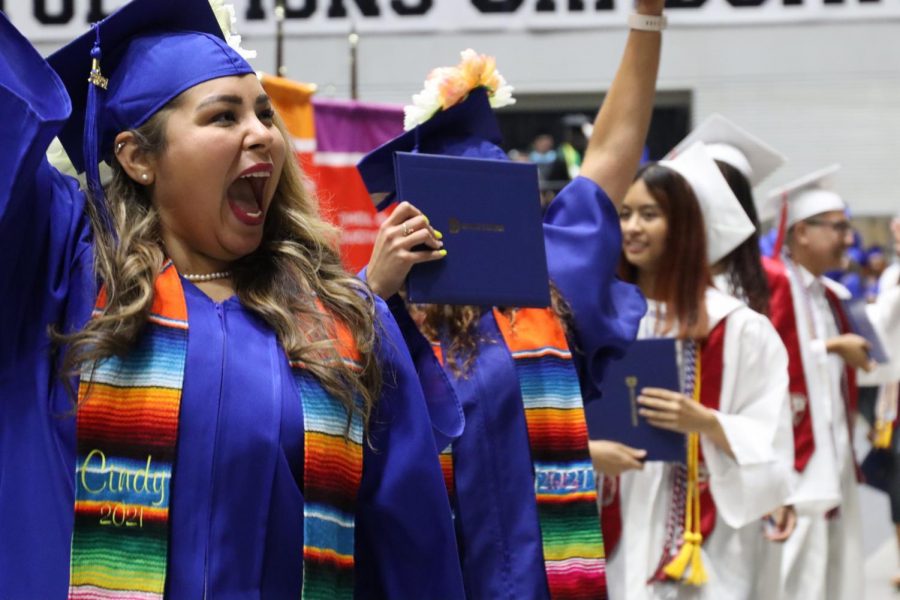
By Adam Bourenane
Contributing Writer
Massive demonstrations in the streets of Chicago outside the 1968 Democratic National Convention helped finalize the political polarization of the time. Half a century later, political polarization is still an issue today.
John Rodden, independent scholar at The University of Texas at Austin’s Harry Ransom Research Center, said the events of 1968 were by far one of the most culturally impactful years, comparing its effects with that of the French Revolution in 1789.
“We are all 1960s kids, still and now,” Rodden said.
POLITICS AND LIFE
1968 brought with it a presidential race in which Democratic moderation split the party between an establishment candidate and a more radical, progressive candidate. Rodden said the main contenders of the1968 Democratic primaries, Hubert Humphrey and Eugene McCarthy, easily compare to their 2016 counterparts, Hillary Clinton and Bernie Sanders. There are also similarities between Richard Nixon and Donald Trump, Republican presidential nominees for 1968 and 2016 respectively.
“Some of the speeches are almost identical,” Jennifer Allen, Brookhaven College history professor, said. “If you study the background of the Nixon administration and the Trump campaign, they appealed to the same people,” she said.
FEAR THEN AND NOW
The 1960s started in 1963, and ended in 1974-75, Rodden said.
Before the 1960s, the youth kept their parents’ lifestyles. Young men wore suits and ties on college campuses, and both the youth and elderly enjoyed listening to Frank Sinatra, Ray Charles and others, he said.
But as the world moved into the atomic era of warfare, the days of the simpler pre-1960s were numbered, Rodden said. In 1962, the Cuban Missile Crisis, a brinkmanship Allen called hell on the collective psyche of America, solidified a global sense of foreboding.
People in 2018 experienced similar fear with Trump’s promise of bringing fire and fury to North Korean dictator Kim Jung Un.
CIVIL UNREST
When President John F. Kennedy was assassinated in 1963, it was clear to people things were changing, and they adapted, Rodden said.
Kennedy drafted the Civil Rights Act, but would not live to see it pass.
President Lyndon Johnson sought to honor his predecessor by ensuring the bill would pass in 1964, but there was pushback. Riots, assassinations, the split in the civil rights movement and the founding of the Black Panther Party highlight the discourse of the time, Allen said.
The Black Panther Party was established as a social movement to address racial inequality toward black communities. Today’s Black Lives Matter movement addresses similar issues the Panthers addressed through social activism, according to the San Francisco Chronical.
While civil unrest unfolded on American soil in 1968, the U.S. military occupied southeast Asia.
In a Feb. 27, 1965 state department memo, Johnson wrote: “This [North Vietnamese] aggression … is a fundamental threat to the freedom and security of South Vietnam.
The people of South Vietnam have chosen to resist this threat. At their request, the United States has taken its place beside them in their defensive struggle.”
Allen said the Vietnam War was the first significant televised conflict, with the Korean War labeled the ‘Forgotten War.’
It showed the brutality of war and the problems with American intervention.
A WAR AT HOME
According to The Los Angeles Times, on June 23, 1967, Johnson arrived at The Century Plaza, along with 10,000 anti-Vietnam War protesters. Clashes with protesters and Los Angeles police officers ensued as the marchers assembled across the street from The Century Plaza Hotel. Hundreds of nightstick-wielding officers forcibly dispersed the protesters.
By the next summer, when Chicago police beat demonstrators in the street outside the 1968 Democratic National Convention, the country was at war with itself, according to The Los Angeles Times.
Activists Abbie Hoffman and Jerry Rubin founded the Youth International Party, whose members were called Yippies, in January 1968, according to pbs.org. They deployed guerilla theater tactics against mainstream culture. Yippies believed adamantly that culture and politics were inseparable.
Hubert Humphrey, then-Johnson’s vice president, won the Democratic primary nomination on June 11, 1968. According to Encyclopedia Britannica, Humphrey was able to gain enough delegates to take control of the convention without entering any primaries.
The aftermath was similar to 2016’s primaries, Allen said. Clinton received 55.6 percent of the vote, with Sanders at 49.9 percent, according to uselectionatlas.org.
“The 2016 Democrats picked someone who would not appeal to the broader audience for a variety of reasons. Establishment politics was out, and so Trump was picked to lead,” Allen said.
Democrats advocated unions, immigration rights and progressive values, Rodden said. But since Humphrey supported the war, and therefore, the draft, progressivism shifted from moderate Democrats to the revolutionary youth, according to the PBS documentary series “American Experience.” Humphrey would go on to write: “One person and one place dominated my life that election year. The place, Vietnam. The person, Lyndon Johnson.”
Three months later, Nixon was elected the 37th President of the U.S.



